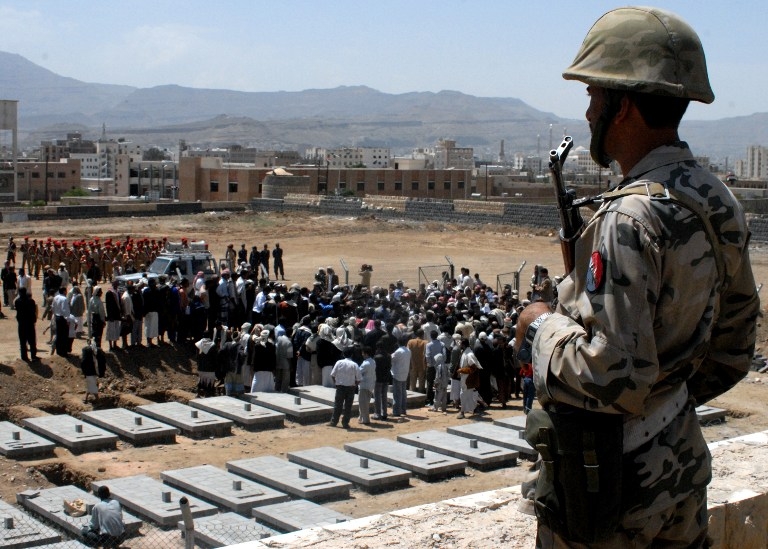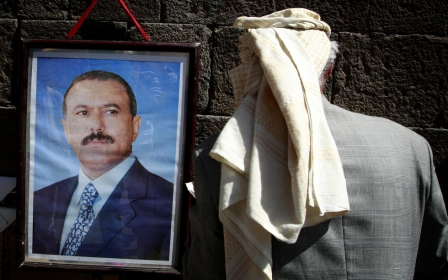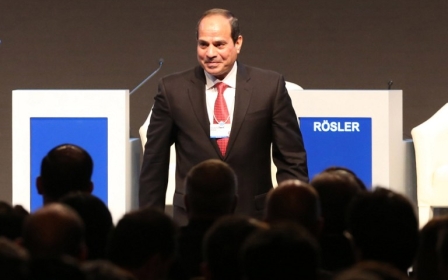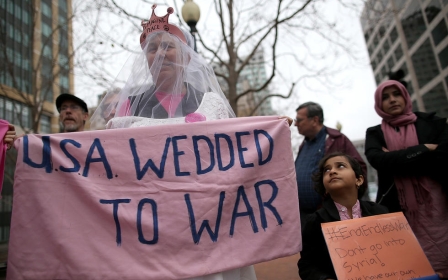How Yemen's Saleh danced on the heads of the CIA

The claims that Hani Muhammad Mujahid makes cannot be verified. What he said about his time as a foot soldier for al-Qaeda in Afghanistan and Waziristan “tracks” with what a former director of counter-terrorism for the CIA knew at the time. But no one can confirm the claim itself. But neither can they ignore it.
For if just part of the investigation carried out by Al Jazeera’s Clayton Swisher is true, it throws a rather large spanner into the works of the war on terror.
Mujahid was an al-Qaeda operative (and probably a bomb maker too) turned informant. Returning to his native Yemen, he joined al-Qaeda in the Arabian Peninsula (AQAP) while on the payroll of two counter-intelligence agencies of then Yemeni President Ali Abdullah Saleh, - the National Security Bureau and Political Security Organisation.
The informant claims he did his job. In 2008, he gave his handlers three warnings, three months, one week and finally three days before an attack on the US Embassy in Sanaa. He claims he gave them the house in which the bombs were being prepared, the fact that they would use two cars, and where they came from. The attack went ahead and 12 died, including an 18-year-old Yemeni American.
There were other troubling aspects to this hit. A road running past the embassy entrance which had been closed for security reasons, opened unexpectedly three days before the attack. When an embassy official ran around the perimeter wall to alert a Yemeni quick reaction force at the back of the compound, they will did not react or even give him a weapon to fight back with. An FBI investigation into the attack got no help from their Yemeni counterparts.
The same thing happened with an attack on a group of Spanish tourists visiting a temple in the Maarib desert on 2 July 2007, which went ahead despite an explicit and imminent warning. The car bomb killed ten and injured 12.
Mujahid’s story does not stop there. He claims Colonel Ammar Saleh, the president’s nephew and then deputy at the National Security Bureau, helped al-Qaeda receive the money and the explosives needed for the attack on the US embassy. Ammar used him as a courier for money and arms intended for Qasim al-Raymi, the leader of AQAP.
Let us just pause there. An informant is claiming that Saleh’s nephew was financing the leader of AQAP, while Saleh himself was using the AQAP’s attacks as a lever to get more US military aid. Saleh frequently met the head of the CIA John Brennan.
AQAP is not just any branch of al-Qaeda but its most active franchise, which narrowly failed to bring planes down over the Atlantic, and developed the liquid explosives which have changed the face of airport security around the world. The US’s most active drone programme is in Yemen. Brennan’s relationship with Saleh was an integral part of GWOT, the Global War on Terror. They met many times.
Other incidents reeked of collusion between Saleh’s government and al-Qaeda. Over a year before AQAP started operations, 23 al-Qaeda operatives dug a tunnel 120 metres long from a maximum security prison in Sanaa to a nearby mosque. They reportedly did it with spoons and plates - a tale which no one believed. The tunnel could not have been dug without the knowledge of the prison authorities.
Saleh’s home is now being bombed by his former Saudi and Emirati backers, while the US and Britain attempt to mediate in Oman between the Houthis and the Saudis.
The actors frequently change sides. Little, however, has changed with the concept of the Global War on Terror itself. This is a Kafkaesque notion which successive US, British, and French administrations cling to, despite the havoc it wreaks on the frail states on which it is practised.
It is used to justify giving dictators the license to crush the democratic demands of their people, while insisting there was a higher purpose, a vital western interest in doing so. With Sisi in Sinai, it’s the Camp David Accord with Israel. It’s from this policy that dictators draw what little legitimacy they can salvage. They use their membership of GWOT both to validate torture, mass arrest, summary execution, and impunity from prosecution and to extort more money from their donors. They have, in fact, a financial interest in chaos and failure. GWOT rewards both.
The path which Saleh trod in Yemen has been well-worn by other thugs, western-backed or not. Maliki in Iraq, Sisi in Egypt, Haftar in Libya, Dahlan in Palestine. It was trod, too, by Putin in Chechnya and Assad in Syria.
GWOT does not even ensure stability between two generations of US allies. Sisi 's rule is currently being weakened by senior security and political figures loyal to the Mubarak establishment. Sisi recently warned Ahmed Shafik, a former presidential candidate from this clan, not to consider returning to Egypt from exile in the UAE. Now a court will retry the former president over the deaths of hundreds of protesters during the 2011 uprising, after annulling a decision to drop murder charges. Its an act of retribution, as the judicial system does not exist as an entity independent of the executive.
The chief beneficiary in all this is al-Qaeda. How much bigger does it have to grow from its birth in a cave complex in Afghanistan before the CIA realises that all dictators double deal as Saleh did with them? For how much longer will the conflicts that dictators themselves help to create, work as leverage for demands for more military aid? How much longer do we have to wait before a White House incumbent realises that autocracy is the prime cause of instability in the Arab world, not its solution? How many more states have to fail, as a consequence of "state-building" efforts? In how many more countries does al-Qaeda have to rise phoenix-like from the ashes before the realisation dawns that the dictators who sign up to GWOT have gone AWOL?
If Saleh danced on the heads of snakes, he must have danced, too, all over the head of Brennan and the CIA. No wonder they have shown scant interest in Mujahid's story. Hopefully a Spanish judge will show more.
- David Hearst is editor-in-chief of Middle East Eye. He was chief foreign leader writer of The Guardian, former Associate Foreign Editor, European Editor, Moscow Bureau Chief, European Correspondent, and Ireland Correspondent. He joined The Guardian from The Scotsman, where he was education correspondent.
The views expressed in this article belong to the author and do not necessarily reflect the editorial policy of Middle East Eye.
Photo Credit: A Yemeni soldier overlooking a cemetery in Sanaa during a funeral on 25 September 2008 for three security guards killed in an attack on the US embassy in Yemen (AFP)
New MEE newsletter: Jerusalem Dispatch
Sign up to get the latest insights and analysis on Israel-Palestine, alongside Turkey Unpacked and other MEE newsletters
Middle East Eye delivers independent and unrivalled coverage and analysis of the Middle East, North Africa and beyond. To learn more about republishing this content and the associated fees, please fill out this form. More about MEE can be found here.





